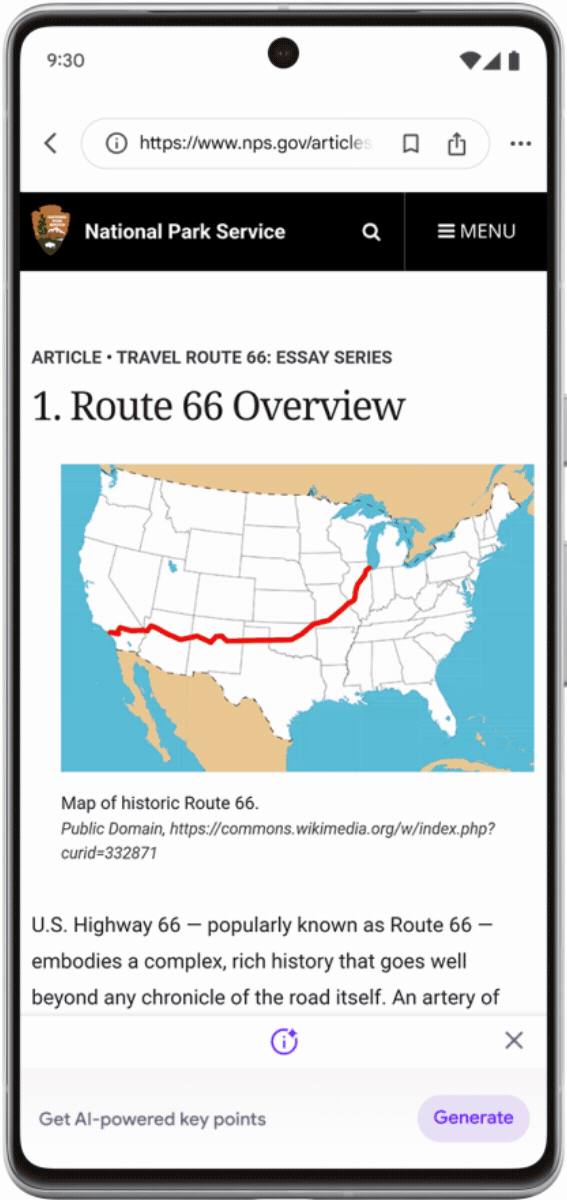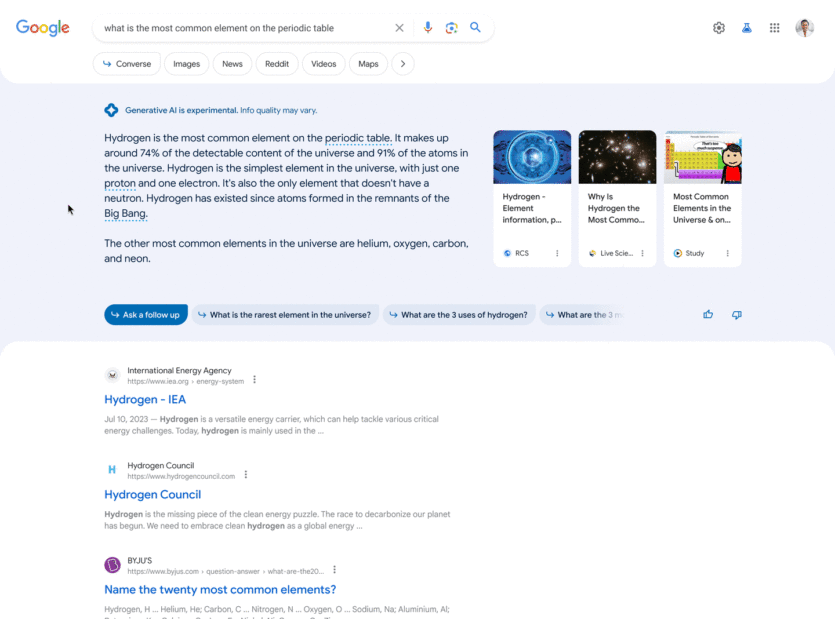
Google uses artificial intelligence to create short annotations for articles
The shortened version of Google articles can be viewed in iOS and Android apps, but the feature will be launched for the desktop later.
Google’s new search based on generative artificial intelligence (Google Search Generative Experience) gets an important feature: summarizing long articles you browse the Internet. The feature is available as an “early experiment” in the Search Labs program (you will have access to it if you have already enabled SGE).
Initially, the feature will be available in Google’s Android and iOS apps, but in the coming days it will be added to the Chrome browser on a desktop computer.
To view key points from the article, just tap the special icon at the bottom of the screen. The feature is designed to work “only with articles that are freely available on the Internet”; Google says it will not work with websites that publishers mark as paid.

Another improvement concerns the categorization of articles: from now on, Google will categorize search results into topics, such as science, economics, and history.
“We think these features can be especially helpful when you’re learning something new or complex, but they can also be useful for other tasks, like finding a new recipe or researching a big purchase,” Google says.

The next SGE update will be able to show definitions for certain complex terms in the text provided by the search. In the example above, some words are highlighted, and when the user hovers the cursor over the text, an annotation with a link to a Wikipedia page or other sites appears next to the words “proton” or “periodic table”.

